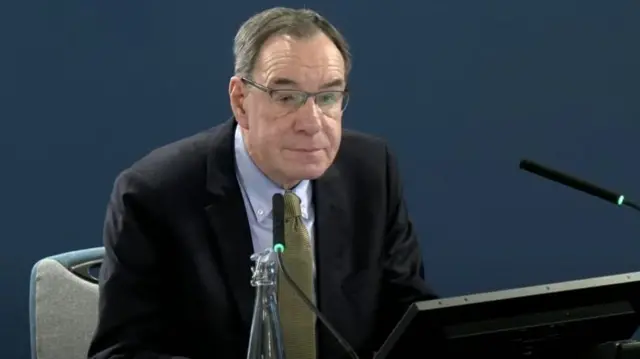Sandifer 'looking for urgency' in early 2020published at 11:05 GMT 6 March 2024
Sandifer says that, by the end of January 2020, he was "very very concerned" and was "looking for some urgency".
He adds that he was not in a position to tell health boards what to do and that this was something that then-NHS Wales boss Dr Andrew Goodall "could have done".
As we heard yesterday, First Minister Mark Drakeford's evidence to the inquiry said Covid was "not a top priority" for the Welsh government until late February or Early March.
